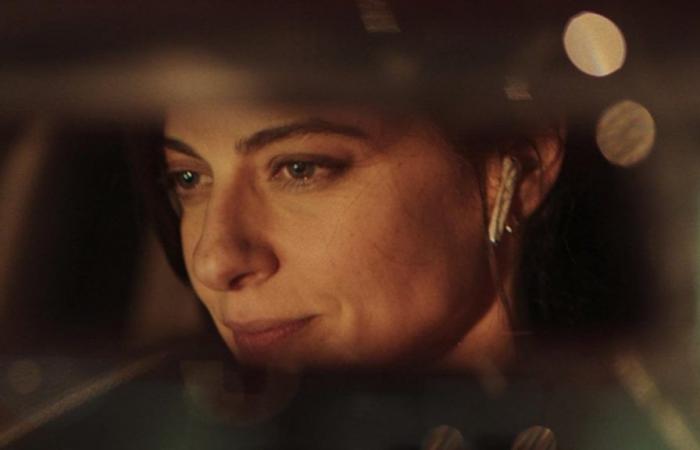Regardless of being successful or not, Don’t hang up it is a sort of warning, capable of reminding the public – overcoming prejudices – that Italian cinema is still capable of ranging between genres, tackling a high-voltage noir in the best possible way. Although not arriving at the complete characterization of time, space and action (as happens in Lockewhich seems to inspire him), Don’t hang up by Manfredi Lucibello still manages to create a sense of anguish and extreme tension by playing with a few ingredients cooked over a slow heat, and with constant attention so as to never appear stringy, but rather successful and coherent.
Don’t Hang Up: The Plot
Freely inspired by the novel of the same name by Alessandra Montrucchio, Don’t hang up It’s the story of a night. It is the story of a call and a race, between Rome in lockdown and a house in Santa Marinella. The calendar says it’s the month of March 2020. Everyone is asleep, except Irene (Barbara Ronchi). And it is in the middle of the night that the woman receives a call. On the other end of the line is Pietro (the voice is Claudio Santamaria), the ex-partner traumatically left six months earlier. Pietro wants to end it all, with his profession, but also with his life. An alarm bell too pressing for Irene, who without thinking twice gets into the car, and challenges the darkness and the provisions that want every citizen locked in their homes, just to save a lost love, perhaps saving herself as well.
The darkness that swallows fear
Se in Locke Tom Hardy’s phone went off and rang, vibrating and becoming the guide of a man in an imperfect personal imbalance, that of Barbara Ronchi in Do not hang up it is a line that must remain free, never disturbed, but always open to another shaky, fragmented existence, ready to close like an unwanted call, like that of her ex-partner Pietro. As long as Barbara Ronchi’s Irene runs on the streets of a ghostly Rome, locked in her house in the midst of a pandemic, the film is a journey that takes you by the hand, and without too much warning, makes you whizz inside her state of mind restless and fearfulleaning towards the worst, but driven by a saving soul.
Sequence after sequence, you can feel all of Irene’s emotional intelligence, just as you can feel the time passing, the wheels whizzing by, while the petrol runs out and the loneliness increases, with a service station that could become forge of further nightmares. A situation that exacerbates that sense of fear, that feeling of failure, that overwhelms the woman and with her, overwhelms the viewer. The photograph is a canvas painted with shadowy hues, cut by a few flashes of light and cold shades, which take the emotional construct by the hand and exalt it, increasingly reducing the distance between the protagonist and her audience.
The small space of a car
The reduced space of the passenger compartment of a car and traveling along such wide roads, yet so compressed due to their desert nature, envelop the spectator, leaving him breathless. Our heartbeat synchronizes with that of the protagonist: unconsciously, a process of emulation begins in the viewer which leads him to breathe like Irene, to reduplicate his emotions, moving from a state of fear to that of anger and relief. Forced into an environment like that of your car, everything becomes claustrophobic; a debilitating feeling perfectly in keeping with the nature of a film like Don’t Hang Up. Precisely for this reason the sensation diminishes the moment this space opens up and Irene gets out of that car/prison to enter a house, in daylight, causing the climax to diminish.
Spectators, or directors of an invisible universe
Se Don’t hang up it works is because in it the gap between action and a dialogue which very often turns into a monologue, is one hood that heightens the tensionleaving the imagination of the spectator himself to act as a further director. Without seeing Claudio Santamaria’s character, but only listening to him, Lucibello plays on the strength of an increasingly oppressive off-screen. We do not see, we do not know if what Pietro says is true or false. By intervening with our own imagination we mentally fill in what is absent, the memories only recovered verbally and never shown, the invisible expressions. Guided by constant close-ups and physical details (eyes and hands) we anchor ourselves to Irene, trying to move along the boundaries of its emotional mappingstealing secrets and interpreting the unsaid. Barbara Ronchi, therefore, faces a sort of personal hell, born in a ghostly and sadly known Rome. However, it will be the cathartic ending that drags the story off the rails, losing its driving energy, slowing down its driving force.
Moving between regrets and memories, voices that become ghosts of a past to chase and encounters dressed in possible hallucinations, Don’t hang up runs in the wake of independent Anglo-American cinema, demonstrating how Italian cinema is more alive than ever. You just have to wait for someone to answer the call.
Conclusions
We conclude this review of Non Riattaccare by underlining how the film directed by Manfredi Lucibello perfectly manages to create a sense of tension, making full use of the small and claustrophobic space of a moving car. A constant call, an often disturbed line, and a corollary of memories and remorse are the main ingredients of a successful noir, which takes its audience and throws them into the center of a rescue attempt while everything around them is silent and the night incorporates every emotion .
Why we like it
- Barbara Ronchi’s performance.
- The power of the off-field.
- The scenes in the car, which emphasize every moment of tension.
What’s wrong
- The choice to open one’s story, moving the space of action from the car to a house by the sea.
- Not having maintained the same voltage power.






